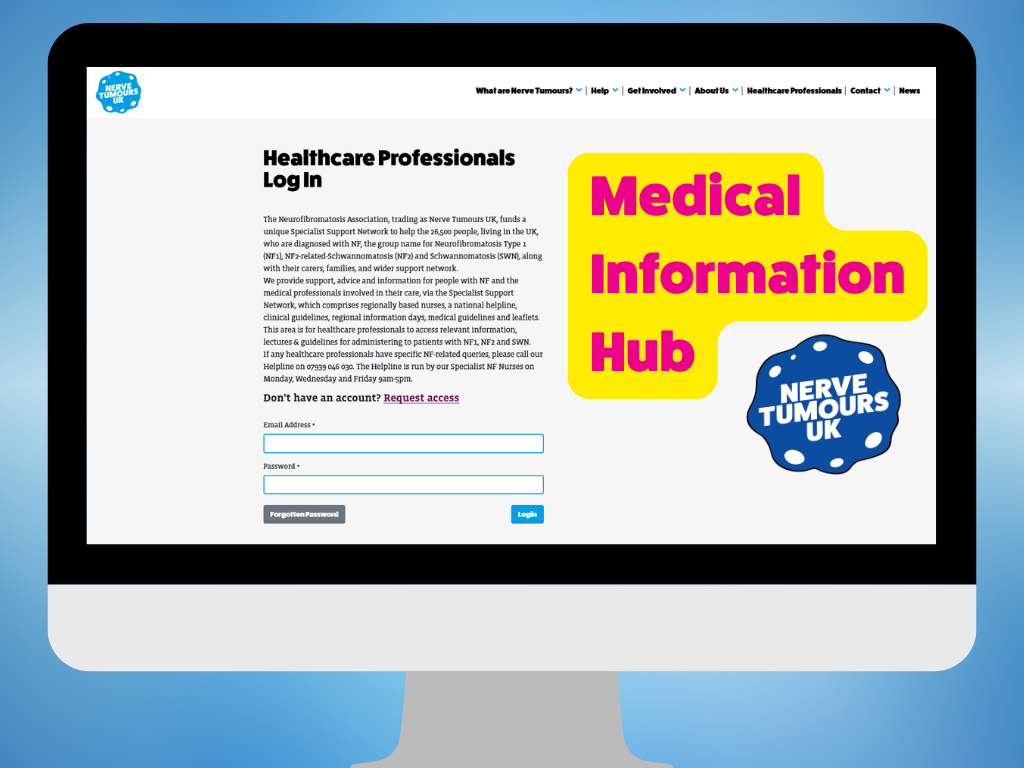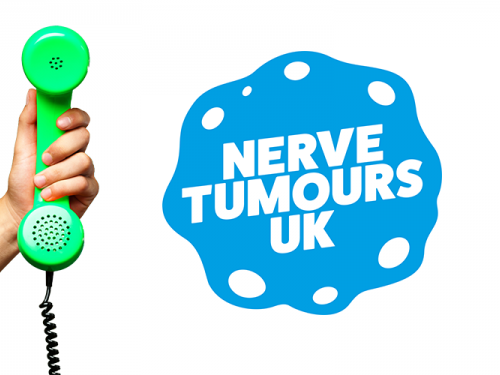iNForm your GP
iNForm Your GP
Helping your GP understand NF
NF is the collective name for Neurofibromatosis Type 1 (NF1), NF2-related Schwannomatosis (NF2) and Schwannomatosis (SWN). Together, these genetic conditions affect more than 26,500 people in the UK. They cause tumours to grow on nerves and can lead to a wide range of medical, physical and psychological complications. While some people live with only mild symptoms, others may face significant challenges such as hearing or vision loss, chronic pain, mobility issues, learning difficulties, or visible differences.
Because NF is not widely known and varies so much from person to person, care can be inconsistent. GPs are often the first point of contact and play a vital role in:
- Carrying out annual reviews in line with national guidelines
- Monitoring for complications, such as changes in skin tumours, scoliosis, hypertension, seizures, or vision/hearing problems
- Supporting families and carers, particularly where NF is linked with learning or social difficulties
- Making timely referrals to the nationally commissioned Complex NF Services and Centres of Excellence when specialist input is needed
You can help your GP by sharing our Letter to Your GP, which explains the condition and signposts them to specialist support and up-to-date medical guidance. You can also direct them to our Medical Information Hub, designed specifically for healthcare professionals.


Medical Guidelines for NF
For medical professionals, staying informed with accurate and detailed guidelines is essential when supporting patients living with NF. The resources provide in-depth, clinically focused information on the diagnosis, management, and treatment of NF1, NF2, and SWN. They are designed for healthcare professionals and contain the level of detail needed for thorough clinical understanding.
We encourage you to share this information with GPs and other colleagues so they can deepen their knowledge and provide informed, consistent care for their patients.
The Learning Disability Register: why it matters
If your child has a learning disability, it’s important they are added to the Learning Disability Register at their GP practice. This is a national register, used by the NHS, to help ensure people with learning disabilities get the right support in healthcare settings.
What is the Learning Disability Register?
It’s a confidential list held by your GP surgery. Anyone, of any age and with any level of learning disability, can be added. Being on the register can lead to:
- Better communication and understanding from healthcare professionals
- Annual health checks tailored to your child’s needs
- Reasonable adjustments during appointments
- Priority access to certain services, like vaccines during public health rollouts
Why this matters for children with NF
Around 60% of children with NF1 experience learning disabilities. Yet without being formally recognised on the register, they may not get the extra support they’re entitled to during GP visits and other health appointments.
This isn’t just about medical care, it’s about making sure your child is seen, understood, and supported as a whole person.
How to join the Register
You need to have a discussion with the GP. The most complicated part of which, is explaining NF to a general practicioner who possibly hasn't thought about NF since their time at medical school. This is why we've created a detailed letter for you to take to them. This takes the pressure off explaining and communicating everything.
You can download the letter below or for more information and assistance please don't hesistate to get in touch with us.
LDR Registration Letter
Download the LDR Registration Letter and make the conversation easier.
Download_1024_768_s_c1.png)
Helpful Charities
Alongside Nerve Tumours UK, there are a number of charities offering specialist support, resources, and community networks for people affected by NF, visible differences and other conditions. These organisations can provide additional information, peer support, and opportunities tailored to patients and families.




